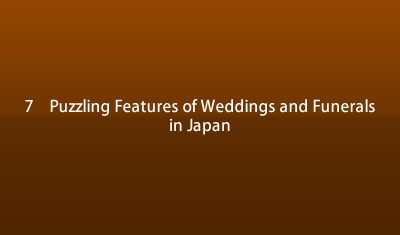 |
Q Why are weddings not held on certain days?
A There are good, bad, and ordinary days designated in the Japanese calendar every year. This folk belief, called Rokuy, or the six basic labels printed on a traditional Japanese calendar indicating how auspicious a given day is, was derived from astrology. The six labels are: Senshi a day lucky in the morning but unlucky in the afternoon. Tomobiki a day lucky in the morning and night but unlucky at noontime. As indicated by the characters, it carries a meaning of pulling a friend along and it is therefore avoided in the scheduling of funerals. Senbu-a day unlucky in the morning but lucky in the afternoon.
Butsumetsu-a day unlucky all day. Taian a day lucky all day. Shakkou a day only lucky at noontime. As seen from the above, butsumetsu is regarded as a most unlucky day and most people avoid scheduling wed-dings on this day. More and more young people nowadays are not bothered by these superstitions, but because there are many parents and relatives who do, there are not too many people who go ahead and hold auspicious events on butsumetsu.
Because the number of weddings held on butsumetsu is about one-third of that held on taian, a certain wedding hall reduces its rate for ceremonies held on butsumetsu to encourage more people to get married on this day.



